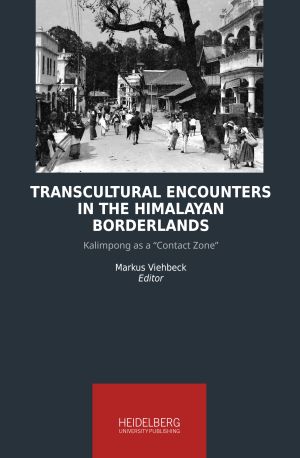
How to Cite
License

This work is licensed under a Creative Commons Attribution-ShareAlike 4.0 International License.
Identifiers
Published
Transcultural Encounters in the Himalayan Borderlands
Kalimpong as a “Contact Zone”
This collaborative study investigates the hill station of Kalimpong and the larger Eastern Himalayan borderlands as a paradigmatic case of a “contact zone.” In the colonial and early post-colonial era, this space enabled a variety of encounters: between (British) India, Tibet, and China, but also Nepal and Bhutan; between Christian mission and Himalayan religions; between global flows of money and information and local markets and practices. Using a plethora of local and global historical sources, the contributing essays follow the pathways of people from diverse cultural backgrounds and investigate the new forms of knowledge and practice that resulted from their encounters and their shifting power relations. The volume provides not only a nuanced historiography of Kalimpong and its adjacent areas, but also a conceptual model for studying transcultural processes in borderland spaces and their colonial and post-colonial dynamics.





